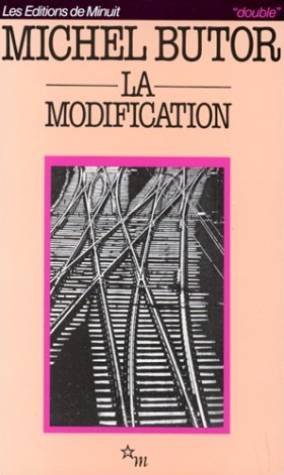What do you think?
Rate this book


314 pages, Pocket Book
First published January 1, 1957
And once again now grown customary noise and rocking movements resume and the world outside the window is running to meet you, to that boundary without the beginning or end which goes through your seat, and behind that boundary it disappears out of sight, and again the wind rushes in the compartment and instantly dries up the air.
Part of the fascination of his writing is the way it combines the rigorous symmetries that led Roland Barthes to praise him as an epitome of structuralism (exemplified, for instance, by the architectural scheme of Passage de Milan or the calendrical structure of L'emploi du temps) with a lyrical sensibility more akin to Baudelaire than to Robbe-Grillet.